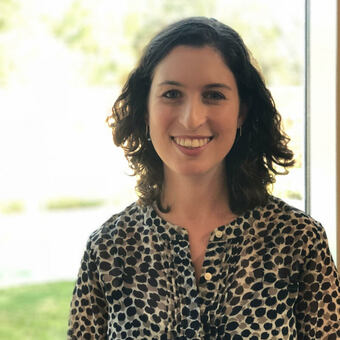 On Erev Pesach last year, I left the cheerful hubbub in my kitchen for a few moments, hoping for good news. Instead, after the then-familiar three minutes of waiting, I gazed upon yet another negative pregnancy test. I thought that this month would be different—I thought that somehow, God would see us in our anguish, that our journey from slavery to freedom that year would be about abandoning the counting, the hormone pills, the cyclical emotional roller coaster every 28 days. I pictured the nurse from the fertility clinic administering the IUI two weeks prior, flashing us a big congratulatory smile, saying how she couldn’t wait to hear from us when we finally got positive results. But it was not to be that month, or the next, or the next. I held Adam and Hannah close, exalting God for the abundant blessings I already had in my life, cried with my mom in the laundry room ... and we all put on joyful faces and celebrated our Festival of Freedom that centers around the idea that we are duty-bound to explain to our children why and how we were liberated from our oppression in Egypt. Exodus 13, for example, teaches us: “Seven days you shall eat no unleavened bread…and you shall explain to your child on that day, ‘It is because of what the Lord did for me when I went free from Egypt.’” Children have a special job on Pesach. They are the catalysts of our gatherings, the instigators of our storytelling. The entire Seder is designed with them in mind; the rabbis teach us that we must set out dishes of nuts and candies to keep them awake and occupied, that we must place strange objects on the table so that they will ask why. The youngest guests at the Seder have the sacred task of asking the Four Questions, providing a framework for the conversation, and they also have the very important job of finding the Afikomen, without which we couldn’t conclude. And so what happens, when we find ourselves deep in discourse about the birthing of our nation, the miraculous grace by which God took us out of Egypt on eagles’ wings, the mitzvah of sharing this story with the next generation—and simultaneously—feeling the pangs of emptiness that we cannot live up to the expectations that we set for ourselves? As a community, we must become aware that one out of every eight of our families contend in some way with infertility, and that as joyful as our holidays can be, that many times, they are tinged with sadness. Just as we look around the table, seeing in our mind’s eye those from previous generations who are no longer with us, we also look around and see the members of the next generation who could be there, who could be helping us shape and inspire the Seders of the present and the future in ways we couldn’t possibly imagine. In your Pesach preparations this year, as you make donations to JFS, Mazon, and other organizations that support Jews who find the holiday to be a financial hardship, I also ask that you donate to the Hebrew Free Loan Society or the Priya Fund, non-profits that provide spiritual, educational, and financial support to families going through fertility treatments. For those who are still in their narrow place—their Mitzrayim, let us bring their stories to the forefront of our consciousness and let us support them as they struggle toward their liberation. May we all be freed from our straits this year, and may we all come together in discovering our personal and communal paths to freedom. Chag sameach, Rabbi Wallach
1 Comment
Janis Falk
4/16/2019 07:54:22 pm
Shira, your message is poignantly beautiful. Thank you for sharing your and Adam's experience with your Shearith family. I'm so happy for the imminent arrival of little Murgatroid Roffman. May your delivery be short and easy, and may your family receive boundless blessings.
Reply
Leave a Reply. |
Details
AuthorsShearith Israel clergy, staff and congregants share Archives
April 2023
Categories
All
|

 RSS Feed
RSS Feed